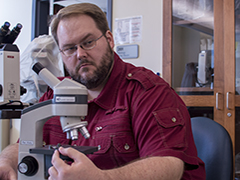
Mr. Daniel French
Lab Supervisor/Biology
Room 220, Koch Center for Engineering and Science
812-488-2092
df95@evansville.edu
Specializations
- Herpetology
- Environmental/Groundwater Microbiology
Education
- B.S. - Freed-Hardeman University
- MS Biology, Austin Peay State University, 2000
My Responsibilities for the Biology Department
- Oversee teaching assistants and student lab, animal care, and greenhouse workers.
- Supervise animal care workers and make sure our animal supplies stay stocked.
- Manage laboratory hygiene, making sure good laboratory practices are followed (e.g., labeling secondary containers, proper storage of laboratory wastes, safe handling of hazards, maintaining safety data sheets, weekly testing of eye wash stations).
- Laboratory prep for lab courses, including BIOL 100, 107, 110, 119, and 430.
- Maintain the bacterial cultures in the department.
Research Interests
I taught at a community college for 5 years and a small university for 1 year before coming to UE. Throughout my academic years, I have been involved in many types of projects, including plant surveys, stream bank restoration and artificial wetland design, and water quality (above and below ground). I was the type of student in undergraduate biology classes that said, “This is so awesome; this is what I want to be.” Botany, parasitology, and histology was even cool.
My current interest focuses on environmental microbiology. Project interests include bioremediation, changes in bacterial populations when exposed to foreign substances, biofilm formation in the presence of foreign substances, and physical factors effecting bacteria in water (e.g., pH, DO, etc.).
I am also interested in reptiles and amphibians and have been involved in projects studying behavioral interactions between the invasive Cuban brown anole and Green anole, behavioral fever of Ribbon snakes, tongue flick behavior of Corn snakes, turtle populations, and human pathogens in the mouths of Copperheads.
Past Research Students
- Spencer Willem, MS
- MS in Earth, Atmospheric, and Planetary Sciences, Purdue University.
- Currently working as a Survey/Drainage Coordinator for Tippecanoe County, Indiana
- Josh Baty
- PhD candidate at The University of Alabama at Birmingham
- Benjamin Waldo, MS, DPM
- MS in Nematology and Doctor of Plant Medicine (DPM), University of Florida
- Currently working at Beltsville Agricultural Research Center, USDA-ARS
- Justin Amburgey
- Clinical Research Coordinator at Chicago Research Center, Inc.
- Nathan Putz, MS
- MS, Laboratory Investigation, Vanderbilt University
- Lab Manager at Vanderbilt University Medical Center
Past Research Projects
Spencer Willem, 2019
Changes in Microbial Communities Before, During, and After Exposure to Carbon Tetrachloride as Determined by Biological Activity Reaction Test (BARTs) and Biolog® Ecolog Plates TM.
Spencer’s project used iron-related BARTs to focus on iron-reducing bacterial communities of flowing microcosms. Iron-reducing bacteria are typically best suited for degradation of carbon tetrachloride. He used Biolog® Ecolog Plates TM to compare the overall effect on bacterial communities.
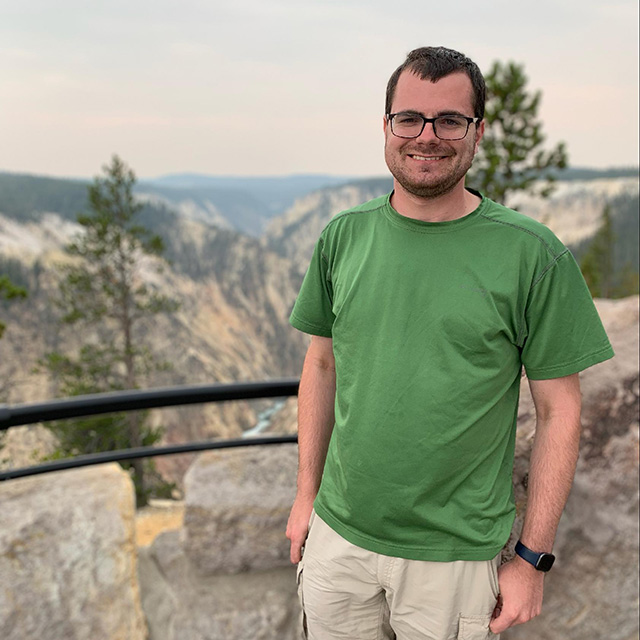
Josh Baty, 2017
Restriction on Bacterial Diversity Demonstrated by Community Level Physiologic Profiling (CLPP) Using Biolog EcoPlates TM After Carbon Tetrachloride Exposure.
Josh used acid producing BARTs to determine whether communities of bacteria were still growing and producing fermentation products over time. The focus of his project was the community profiling at the physiological level and to use Biolog® EcoPlates TM and statistical methods to analyze these changes.
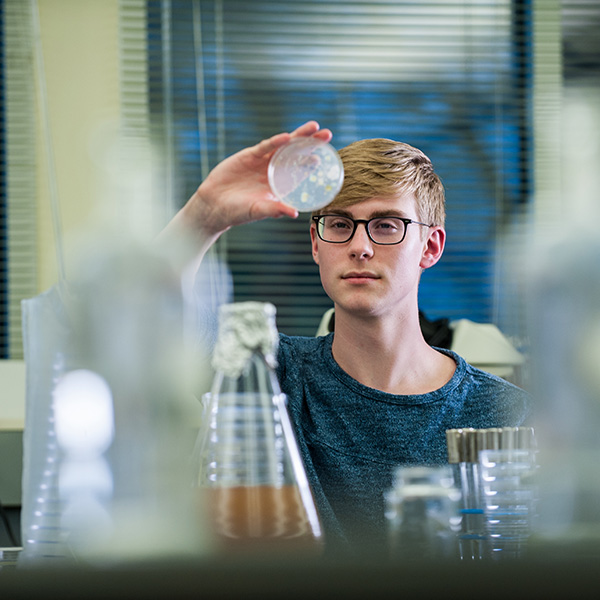
Benjamin Waldo, 2015
Internalization of Escherichia coli by Solanum lycopersicum from Contaminated Water.
After completing an internship at Sakata Seed Company in Florida, Benjamin quantified the bacteria that could enter a tomato through the stem scar in the field at harvest. He dunked his tomatoes in bacteria-laden water at different temperatures and processed them to determine if bacteria had entered the tomatoes. (No mater his findings, I still do not purchase tomatoes unless the calyx is intact, preferably with a decent sized peduncle.) Benjamin's tomato plants were the first plants to be grown in the McCarthy Greenhouse.
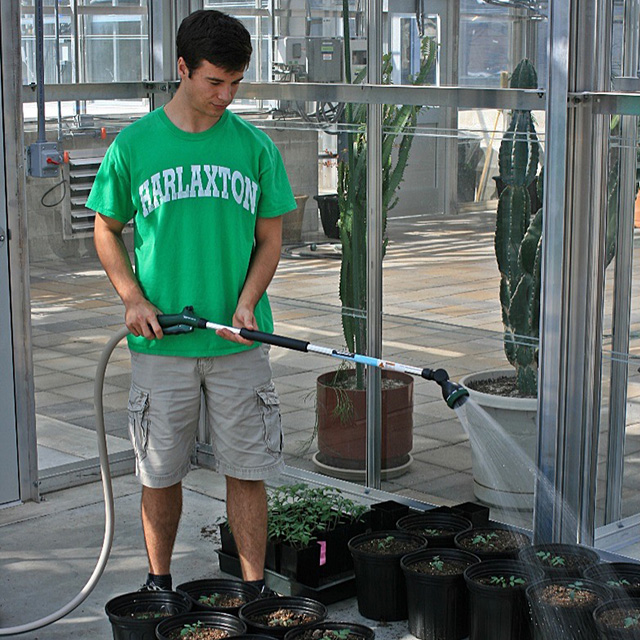
Justin Amburgey and Nathan Putz, 2014
Preliminary Bioremediation of Carbon Tetrachloride Under Denitrifying Conditions.
Justin’s and Nathan’s project focused on the degradation of carbon tetrachloride by denitrifying bacteria, mainly Pseudomonas. Pseudomonads are typically considered aerobic bacteria; however, some species are capable of denitrification (a mainly anaerobic process). Pseudomonas stutzeri strain KC is known to degrade carbon tetrachloride. Justin and Nathan used static microcosms of mixed “native bacteria” and pure cultures of various Pseudomonads. The microcosms were enhanced (i.e., fed) with infant formula to introduce carbohydrates and vitamins. Samples were then extracted from the microcosms and tested by GC/MS for the presence of carbon tetrachloride.
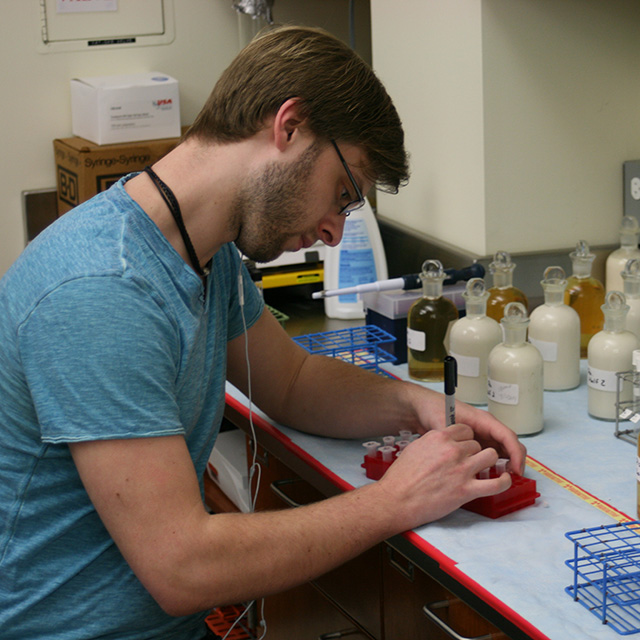
Office Phone
812-488-2024
Office Email
de3@evansville.edu
Office Location
Room 231, Koch Center for Engineering and Science
